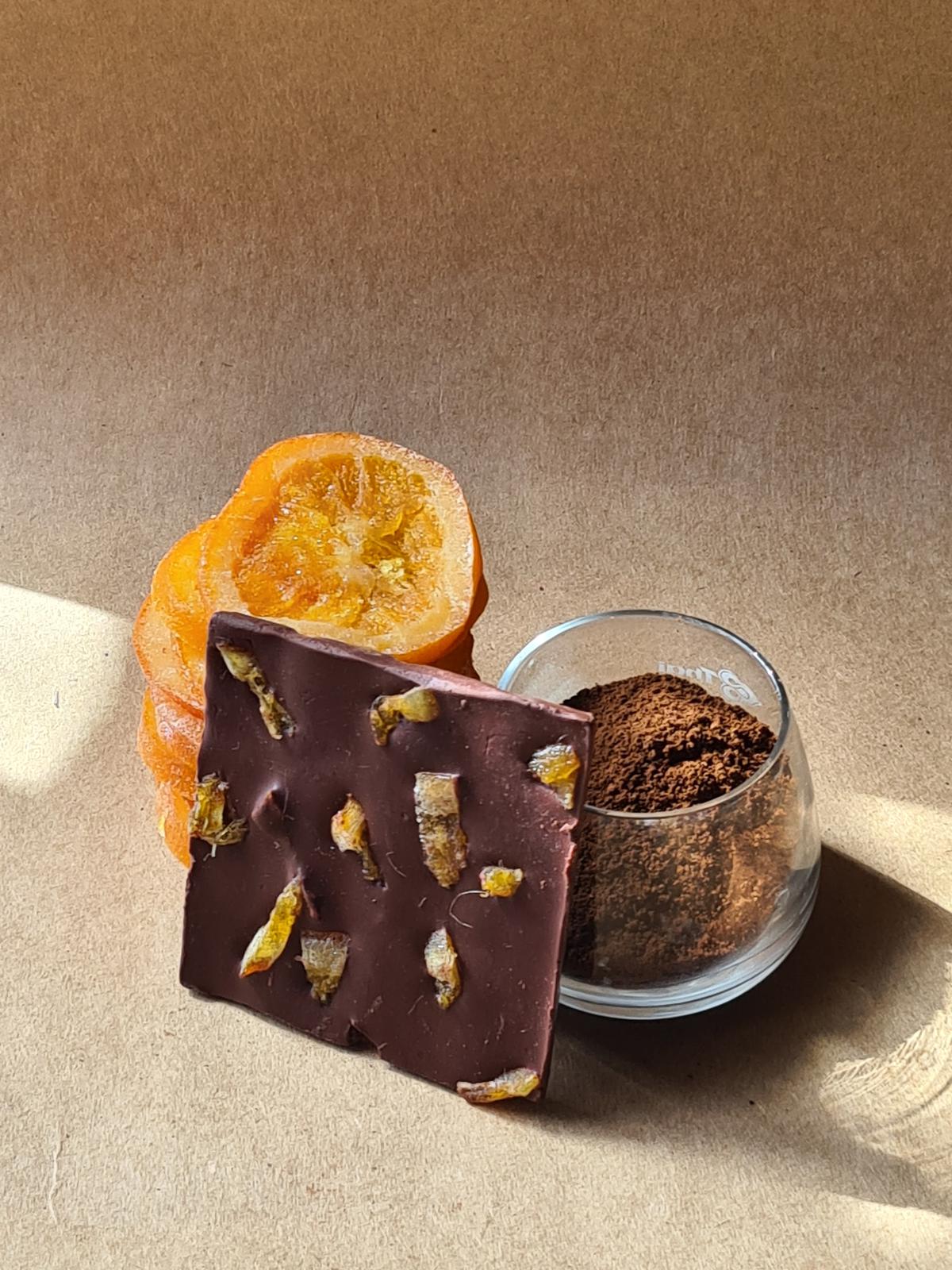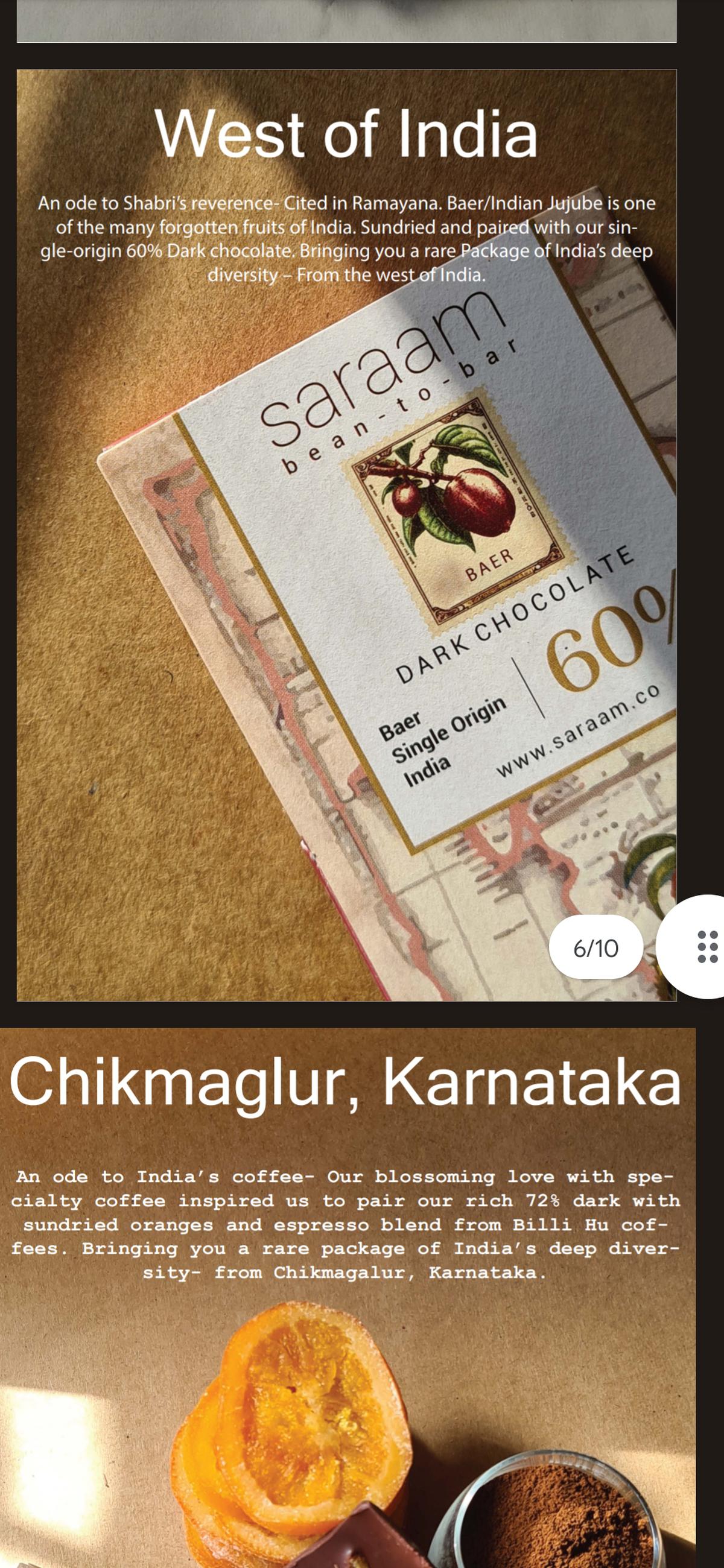Saraam Chocolates uses falsa, ber, bael and kokum in their bars

Digvijay with his cousin Mahaveer at Saraam chocolate making unit
You have had chocolates with nuts, fruits and liquor. Exotic ones at that. Have you had chocolate with ber (Indian gooseberry) or centre-filled chocolates with fresh sitaphal (custard apple) pulp?
Saraam Chocolates from Udaipur celebrates Indian indigenous berries and fruits. Nineteen-year-old Digvijay Singh established Saraam in December 2020 as a white labelling company. (White label is the practice where a company purchases a product from another company and then rebrands it as its own). Digvijay learnt that they could make chocolates independently and decided to float his brand.
Digvijay confesses, “I was not academically strong and preferred to stay out of class to participate in drama, games or anything that didn’t need me to study. I also wanted to earn money to spend without explaining the expense to my parents. It is just the need to have more pocket money than I was given; so as not to have to budget for things I wanted impulsively.. I am very proud that I don’t have any vices.”

Though he was provided with everything by his family, he wanted to experience a sense of ownership which he described “as a comforting feeling.” Now, while Digvijay works with a team of 10 people, his cousin Mahaveer Singh handles production.
While white labelling did get him orders, he wanted to sell something better in terms of quality and bean-to-bar. “My journey in chocolate making was not because of the love for chocolates, nor did I have a plan where I was focussed on pushing indigenous fruits and berries. I started making chocolates in my bedroom, which turned into my studio; day in and day out, I lived and slept in the aroma of chocolates. Even before I got into the business of white labelling, I was teaching myself about cacao beans, roasting, grinding etc. I was experimenting, doing small batches. Luckily, Nandita and chef Manish Joshi and Dilip Nair of Taj Udaipur were kind enough to mentor me.” Discussions with these mentors made him understand that the future of the food and beverage industry was in micro-regional flavours and ingredients.

Saraam chocolates
Market research rather than trends led Digvijay’s decision, from recession- proof white labelling, affordable luxuries, to chocolate making. While the world made reels and Dalgona coffee, Digvijay taught himself the process of chocolate making.
When he reached out to suppliers for berries and flavours in his chocolates, all he got was international. “The market is ready to buy international candied berries and fruits. Blueberries are a thing now, but we push aside flasa calling it seasonal. Aren’t all berries like strawberries, blueberries and raspberries seasonal? I put my foot down and told my supplier in Palampur, Himachal Pradesh, that my berry list is only Indian regional and nothing else. He took up the challenge and got small batches of dehydrated ber, bael (stone apple), falsa (sherbet berry) and chharma (seabuck buckthorn) to begin with.”
Saraam will soon have a kokum chocolate as well. How is the feedback on taste? “ Some people loved the ber chocolates and some didn’t. I am happy that no one gave me a feedback that was neither here nor there.”
Saraam also made seasonal centre-filled sitaphal chocolates. “Their shelf life is extremely low; perhaps two days. However, the feedback for it has been very encouraging.”
What next? “I am working on a lot of other berries, I want to unveil it for the festive season,” he adds.
Saraam chocolates (chocolate bars start at ₹350) are available online on https://www.saraam.co
Saraam’s local fruity explorations
Kokum from Konkan Belt
Mathania Red Chillies from Jodhpur
Karonda from Himachal
Phalsa from Ganga plains
Bael from Himachal Pradesh
Seabuckthorn berries from Lahaul Spiti
Karonda from Palampur, Himachal Pradesh
Baer from Udaipur and surrounding villages
Jamun from Mewar
For all the latest Life Style News Click Here
For the latest news and updates, follow us on Google News.
